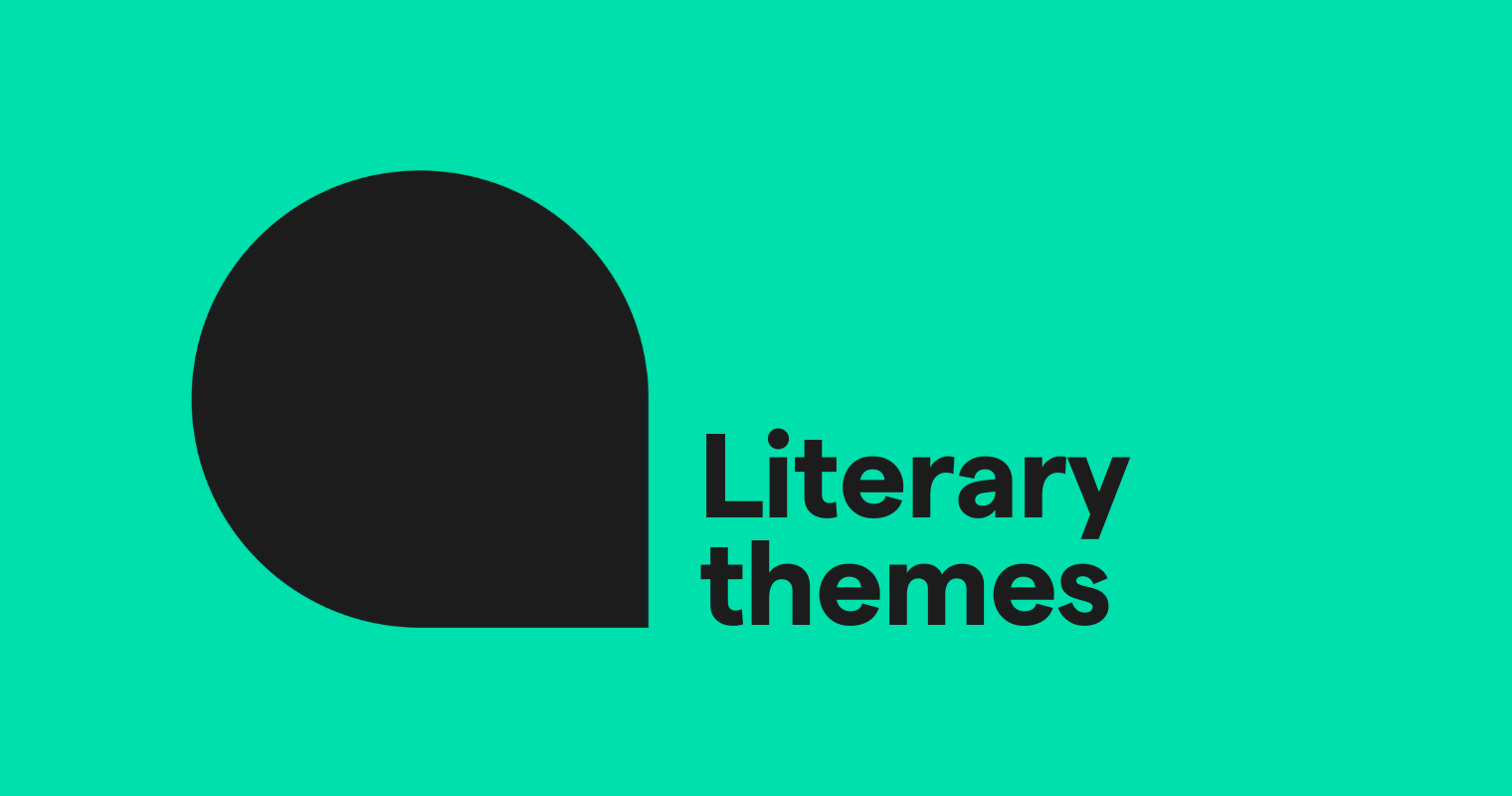Table of Contents
ToggleIntroduction
Breaking Down Complex Literary Themes Simplified The fundamental concepts or subliminal messages that writers express in their works are known as literary themes. They frequently explore themes like love, death, identity, and the struggle between good and evil, reflecting profound truths about the human condition.
A literary work’s themes are frequently revealed through symbolism, plot development, character behavior, and environment rather than being expressed directly. Because of their subtlety, themes are a crucial—yet occasionally intricate—aspect of literary study.
It might be intimidating to comprehend literary ideas, particularly when reading works of ancient literature or contemporary writings with many levels of significance. But it doesn’t have to be hard to deconstruct these intricate concepts.
Readers can learn to recognize, investigate, and value the literature’s deeper meaning with the correct method. In addition to offering an overview, this article will walk you through the process of deconstructing and simplifying intricate literary ideas so that you can approach them in your own reading.
1. What Is a Literary Theme?
Before diving into how to break down complex themes, it’s important to understand what a theme is in literature. A theme is the central message or underlying idea of a story that is developed throughout the plot. It is not the same as the plot itself, which refers to the sequence of events that happen in the narrative. Rather, the theme explores the deeper meanings or moral lessons that emerge from the characters’ experiences and the events that unfold.
For example, in George Orwell’s 1984, one of the major themes is the abuse of power and the dangers of totalitarianism. This theme is not directly stated but is illustrated through the experiences of the protagonist, Winston Smith, and the oppressive regime he lives under.

2. Identifying Common Literary Themes
In any work of literature, there are a variety of themes that might emerge. Some themes are timeless and universal, while others are more specific to the context of the work or the author’s experiences. Some of the most common literary themes include:
2.1 Love
Breaking Down Complex Literary Themes Simplified Love is a recurring theme in literature, explored in many forms such as romantic love, familial love, and self-love. Whether it’s a tragic love story like Romeo and Juliet or a more subtle exploration of love and loss in The Great Gatsby, love is often portrayed as both a motivating and destructive force.
2.2 Power and Corruption
The theme of power and corruption examines how power can affect individuals and societies. Works like Lord of the Flies and Animal Farm explore how those who hold power often exploit it, leading to moral decay and the oppression of others.
2.3 Identity and Self-Discovery
Many works of literature center on characters’ journeys of self-discovery, grappling with questions of who they are and their place in the world. This theme is often found in coming-of-age novels like The Catcher in the Rye and The Bell Jar.
2.4 Conflict
Breaking Down Complex Literary Themes Simplified Conflict is a driving force in most stories, whether it’s internal conflict (a character’s struggle with their own desires or morals) or external conflict (a character’s battle with society, nature, or other characters). The Hunger Games explores the tension between individual freedom and societal control, while Moby Dick examines the obsessive conflict between man and nature.
2.5 Death and Mortality
Death is a theme that touches on the impermanence of life and the inevitability of human mortality. It is explored in works such as The Road by Cormac McCarthy, where the theme of survival in the face of impending death is prominent.
2.6 Social Justice and Inequality
Issues of race, class, and social justice are powerful themes in literature. Novels like To Kill a Mockingbird by Harper Lee and The Hate U Give by Angie Thomas address issues of racial inequality, systemic injustice, and the quest for fairness.
2.7 Isolation and Alienation
The theme of isolation explores the feeling of being disconnected from society or even from one’s own sense of self. Works like Frankenstein and The Metamorphosis depict characters who experience intense alienation, whether due to physical, emotional, or societal barriers.
3. Breaking Down Complex Themes: A Step-by-Step Approach
Breaking Down Complex Literary Themes Simplified When faced with a complex theme in literature, it’s important to approach it methodically. Understanding how to break down and analyze a theme will allow you to appreciate its nuances and the way it shapes the narrative. Here’s a step-by-step guide to simplify complex literary themes:
3.1 Step 1: Identify the Theme
The first step in breaking down a theme is to identify it. Ask yourself what the story is trying to communicate on a deeper level. What are the central ideas or messages the author is exploring through the plot and characters?
To do this, look for recurring symbols, phrases, or situations that point to a particular theme. Consider the following:
- What is the conflict of the story? Is it centered around issues like power, identity, or morality?
- How do the characters change over the course of the story? What do their journeys reveal about the theme?
- What is the setting of the story, and how does it reflect the themes being explored?
For example, in 1984, the theme of surveillance and loss of individuality is revealed through Winston’s struggle against the Party and the omnipresent surveillance system of Big Brother. The setting of a dystopian future and the character’s isolation emphasize this theme.
3.2 Step 2: Analyze the Characters and Their Development
Breaking Down Complex Literary Themes Simplified Characters are often the vehicle through which themes are explored in literature. Pay attention to how characters respond to situations and how their actions reflect the central themes.
For example, in The Great Gatsby, Gatsby’s obsessive pursuit of Daisy reflects the theme of the American Dream and its inherent emptiness. His character arc illustrates how the pursuit of unattainable goals can lead to disillusionment and tragedy.
Character development also plays a key role in how themes evolve throughout the story. For example, in Pride and Prejudice, Elizabeth Bennet’s personal growth and shifting views on marriage illustrate the theme of social expectations and individual agency.
3.3 Step 3: Examine the Symbolism and Imagery
Authors often use symbolism and imagery to reinforce complex themes. Pay attention to objects, colors, animals, or events that may carry symbolic meaning. For example, the green light in The Great Gatsby symbolizes Gatsby’s unreachable dream and his desire for a future that is never to be.
In Lord of the Flies, the conch shell symbolizes order and civilization, while its eventual destruction represents the breakdown of society and the descent into savagery. Identifying these symbols and understanding their significance can deepen your understanding of the central themes.
3.4 Step 4: Consider the Setting and Context
Breaking Down Complex Literary Themes Simplified The setting of a story—its time period, place, and atmosphere—can also be a key indicator of the themes being explored. For example, in Of Mice and Men, the setting of the Great Depression and the vast, lonely landscapes underscore the themes of isolation and the fragility of dreams.
Context is also crucial. The time period in which a book is written often informs the themes it explores. For example, many of the themes in Virginia Woolf’s Mrs. Dalloway reflect the post-World War I era, dealing with issues such as trauma, mental health, and the changing roles of women.
3.5 Step 5: Reflect on the Resolution and Its Message
The way a story concludes often sheds light on the theme’s central message. Does the protagonist achieve their goal? Are the larger issues addressed or left unresolved? How does the ending reflect the author’s stance on the theme?
For example, in The Catcher in the Rye, Holden Caulfield’s journey is one of self-doubt and confusion. The novel’s open-ended conclusion—where Holden is in a psychiatric facility—reflects the theme of identity and the difficulty of growing up.
4. Examples of Complex Themes in Literature
Breaking Down Complex Literary Themes Simplified Let’s look at a few examples of complex themes and how they play out in different works of literature:
4.1 The American Dream in The Great Gatsby
F. Scott Fitzgerald’s The Great Gatsby explores the theme of the American Dream—specifically, the idea that anyone, regardless of their background, can achieve success and happiness. However, through the character of Gatsby, Fitzgerald critiques the myth of the American Dream, showing how it is corrupted by materialism and unattainable ideals.
4.2 Isolation in Frankenstein
Mary Shelley’s Frankenstein explores themes of isolation and alienation, both literal and metaphorical. Victor Frankenstein’s isolation in his obsessive pursuit of knowledge leads to the creation of the Monster, who experiences profound emotional and physical isolation from society. The novel explores the destructive effects of both self-imposed and external isolation.
4.3 Identity and Social Conformity in The Bell Jar
Breaking Down Complex Literary Themes Simplified Sylvia Plath’s The Bell Jar deals with the theme of identity and the pressure to conform to societal expectations, particularly for women. The protagonist, Esther Greenwood, struggles with her sense of self, torn between her desires and the roles society expects her to fulfill. The theme of mental illness also plays a critical role, as Esther’s depression is both a personal and societal struggle.

Conclusion
Breaking Down Complex Literary Themes Simplified Literary themes are at the heart of what makes stories impactful, thought-provoking, and relevant to readers across time periods and cultures. By learning how to break down complex themes and analyze how they are woven into the narrative, you can deepen your understanding of literature and gain insight into the world around you.
Understanding themes also enhances your ability to engage with literature more meaningfully. Whether you’re reading for pleasure, academic study, or personal growth, having the tools to analyze and interpret themes will allow you to connect more deeply with the texts you encounter.
Read More
FAQ
1. What is the difference between a theme and a plot?
A plot refers to the events and actions that make up a story, while a theme is the underlying message or central idea that is explored throughout the story. The theme is often revealed through the plot, characters, and setting, but it is distinct from the plot itself.
2. How can I identify a theme in a book?
To identify a theme, look for patterns or recurring ideas in the story. Consider the conflicts, characters’ actions, and the lessons they learn. Reflect on the book’s conclusion and the emotions or thoughts it leaves you with. Themes are often not explicitly stated, but they emerge through the characters’ experiences.
3. Can a book have more than one theme?
Yes, many books explore multiple themes simultaneously. For example, a novel might explore themes of love, loss, and personal growth all at once. The interplay between different themes can add complexity and depth to a work.
4. Do themes in literature change over time?
Themes can evolve as they reflect the concerns and issues of a particular time or society. For example, themes of gender equality, racial justice, and environmentalism have become more prominent in contemporary literature, reflecting global societal changes.















